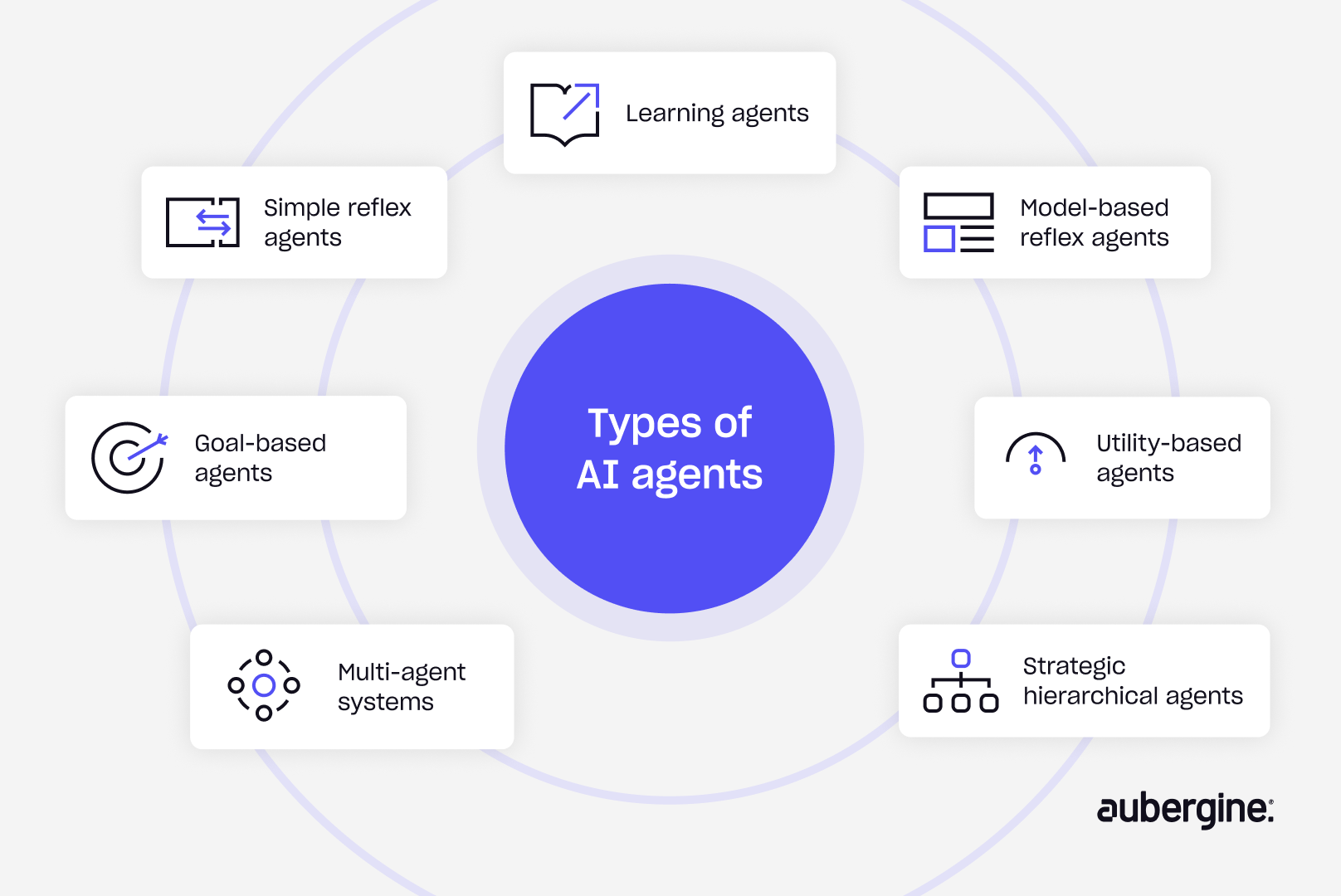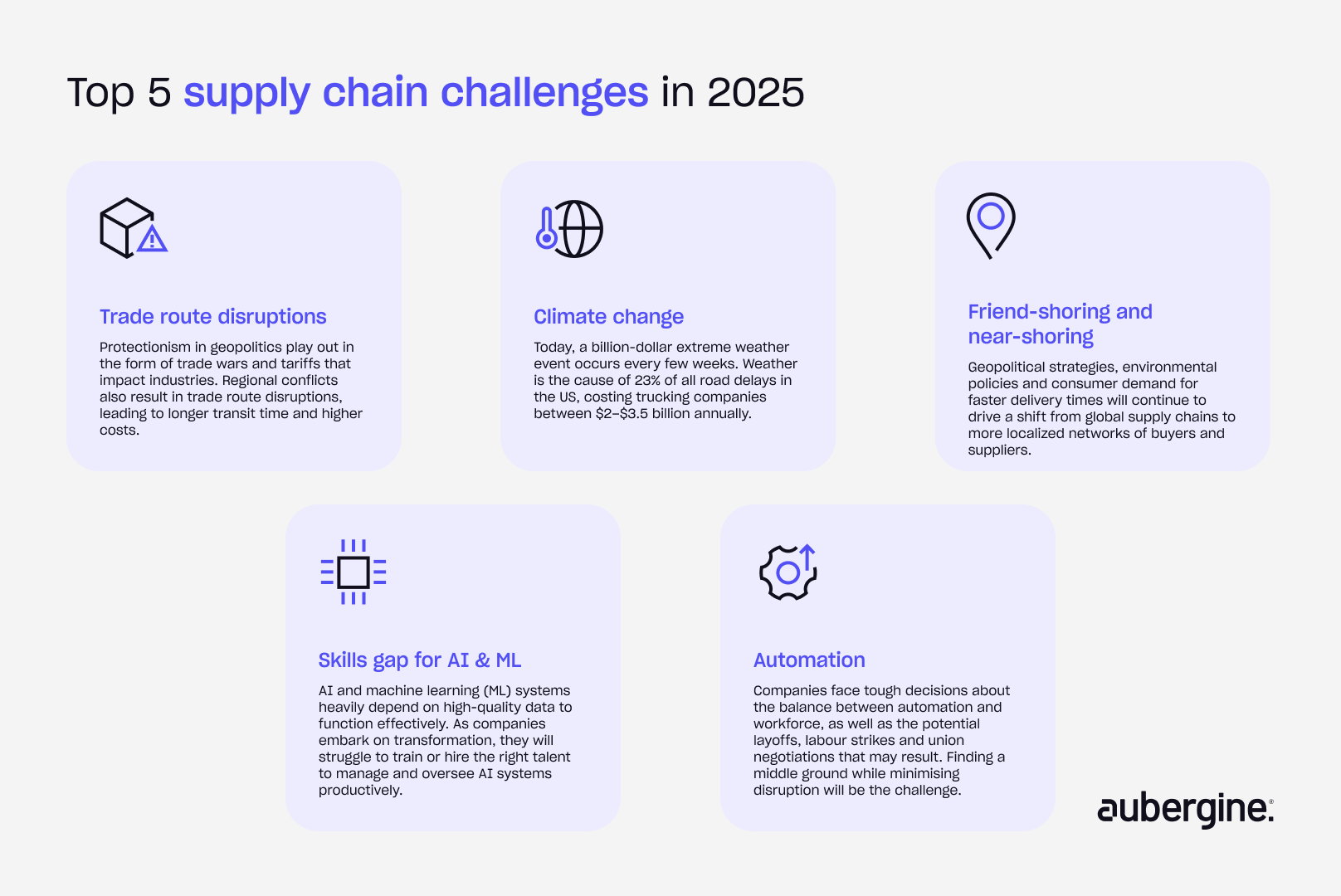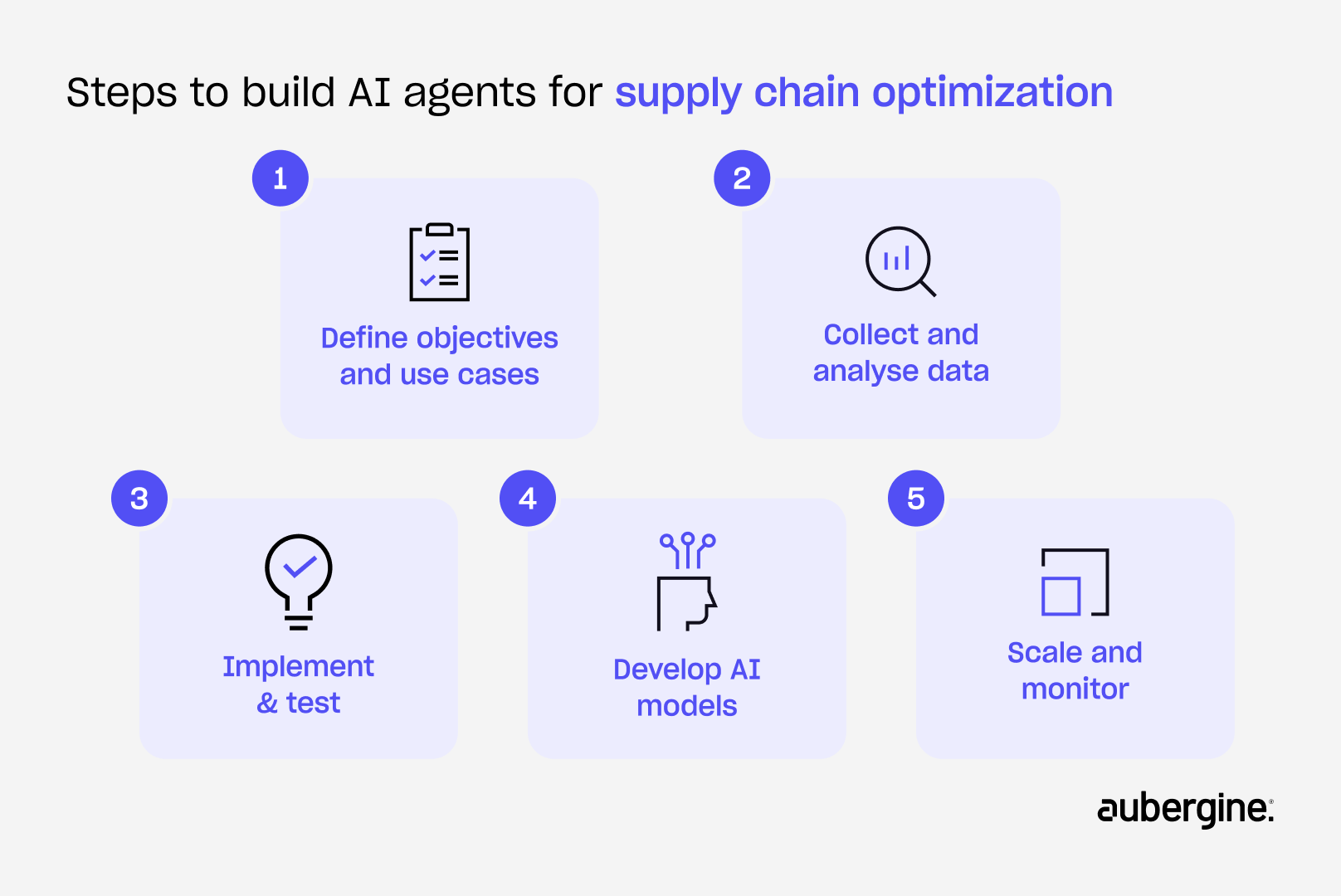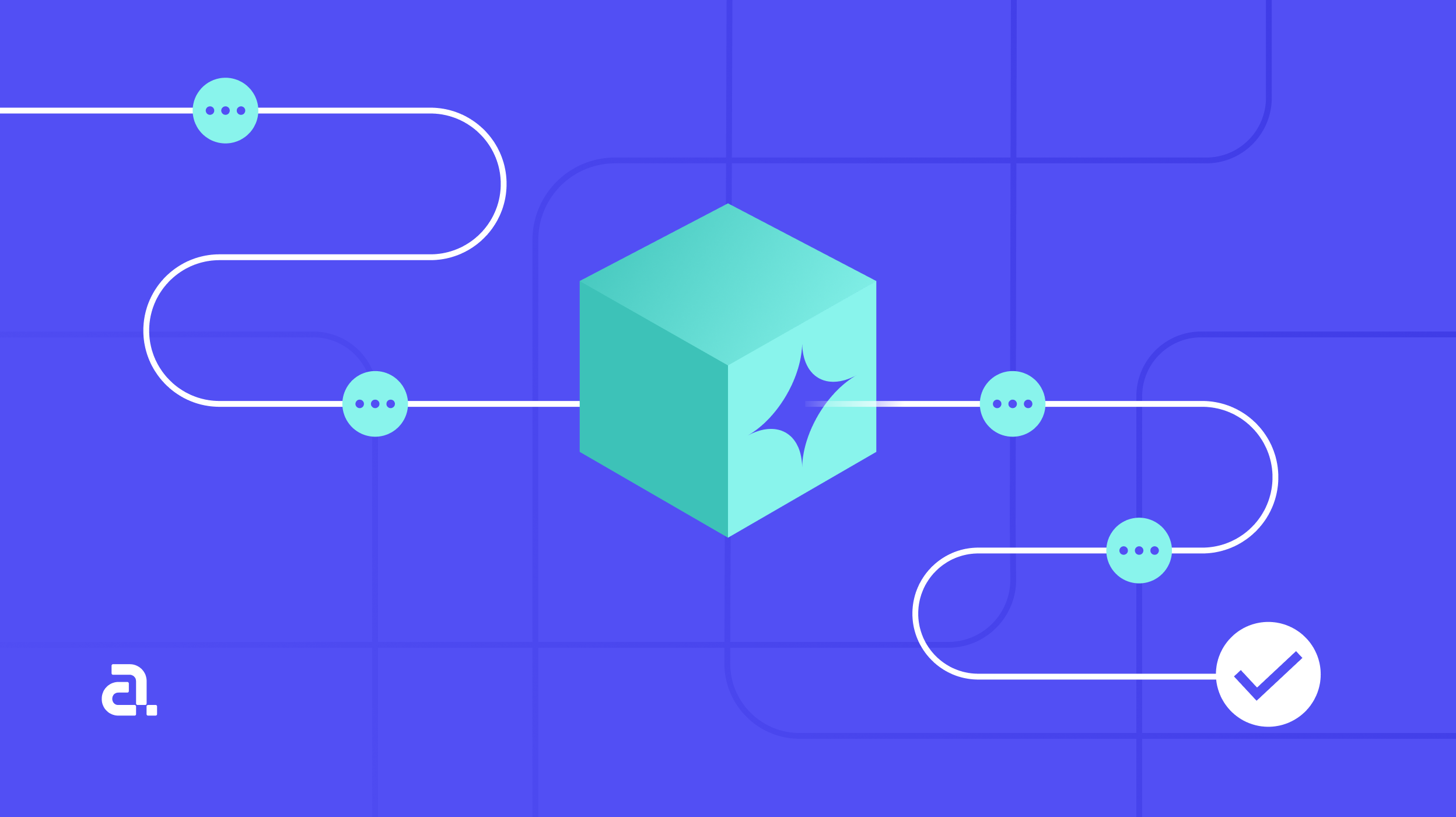The global supply chain has long been a finely tuned machine, but today it faces unprecedented challenges. Rising costs, unpredictable disruptions, and soaring customer expectations for speed and transparency are creating a perfect storm for CEOs worldwide.
The traditional “predict and plan” model, which relies heavily on static software and manual processes, simply cannot keep pace with the dynamic demands of the modern marketplace.
What’s needed is a new kind of intelligence—one that doesn’t just automate routine tasks but can think, adapt, and act autonomously. Recent advances in generative ai have further enhanced the capabilities of AI agents, allowing them to process complex information and support autonomous decision-making.
Enter AI agents: autonomous, intelligent systems designed to navigate complexity, turning disruption into a competitive advantage and redefining efficiency across every stage of the supply chain.
These AI agents are powered by advanced ai models, which enable them to make predictions, perform tasks, and operate independently. An AI agent is a type of intelligent agent specifically designed to reason, plan, and act within dynamic supply chain environments. An AI agent collects information from its environment using sensors to perform tasks.
How AI agents work
Traditional automation and Robotic Process Automation (RPA) systems operate based on predefined rules and lack the flexibility to adapt to real-time changes.
Unlike simple reflex agents that follow rigid rules, autonomous AI agents leverage advanced machine learning techniques and natural language processing to understand context, learn from past interactions, and make informed decisions independently.
AI agents can interpret and respond to user requests, enabling more interactive and responsive supply chain management. The functionality of an AI agent is typically defined by a core cycle that involves perception, planning, and action.
Key features that differentiate AI agents include:
- Context Awareness: AI agents interpret data meaningfully rather than following static rules.
- Adaptability: They learn from new information and adjust strategies in real-time. AI agents can also collaborate with other agents to coordinate actions and solve complex supply chain challenges.
- Autonomy: They proactively complete tasks and make decisions without human intervention, even in dynamic environments.
These capabilities enable AI agents to automate complex tasks and tackle complex workflows, enhancing supply chain resilience and efficiency.
Types of AI agents
AI agents are categorized into five main types: simple reflex, model-based reflex, goal-based, utility-based, and learning agents. Simple reflex agents respond directly to current conditions, making them ideal for automating straightforward, repetitive tasks.
Model-based reflex agents go a step further by maintaining an internal model of the supply chain, allowing them to consider past actions and predict future states—crucial for managing complex tasks and adapting to dynamic environments.

Goal-based agents focus on achieving specific objectives, such as minimizing delivery times or reducing inventory costs, while utility-based agents evaluate different outcomes to select actions that maximize overall benefit.
Learning agents continuously improve their performance by identifying patterns and learning from experience, making them invaluable for automating complex tasks and optimizing logistics.
By deploying a mix of these AI agent types, supply chain management professionals can address a wide range of challenges, from routine automation to advanced decision-making.
State of supply chain and logistics management
Supply chain management professionals face mounting pressure as disruptions become more frequent and costly. According to a Supply Chain Dive report:
- 94% of companies report a negative impact on revenue due to supply chain disruptions.
- Only 6% of businesses have achieved full end-to-end supply chain visibility, limiting their ability to respond proactively.
- The average supply chain disruption now costs companies upwards of $1.5 million per day.
- Delivery times remain 25% longer in 2025 compared to pre-pandemic levels.

These challenges highlight critical gaps in traditional supply chain and logistics management approaches, which often rely on siloed data, manual processes, and static planning tools. The increasing complexity of global supply chains, with extended networks of suppliers, manufacturers, distributors, and customers, demands more agile and intelligent solutions.
To address these challenges, modern AI systems are being adopted to ensure transparency, ethical operation, and effective governance in supply chain management. AI agents, in particular, offer the ability to not only automate repetitive tasks but also to proactively analyze vast amounts of customer data and external information, such as market trends and geopolitical events, to anticipate disruptions and optimize decision-making.
Moreover, AI agents can facilitate collaboration between human agents and automated systems, combining human expertise with machine efficiency. This synergy is essential for navigating unpredictable environments and making informed decisions that balance cost, speed, and sustainability.
Why supply chain & logistics are ideal for AI agents
The supply chain environment is ripe for AI agent technology due to its:
- Dynamic nature: Constant fluctuations in demand, weather, and costs require agile responses.
- Data richness: Massive volumes of data demand sophisticated analysis to identify patterns and optimize outcomes.
- Interconnected complexity: Decisions in one area impact the entire supply chain, necessitating coordinated multi-agent systems. As part of advanced AI systems, AI agents can tackle complex tasks that require coordination across multiple supply chain functions.
Integrating AI agents into supply chain management
Integrating AI agents into supply chain management unlocks new opportunities to automate routine tasks, enhance inventory management, and optimize logistics operations.
AI agents can analyze vast amounts of data, identify patterns, and make informed decisions that drive efficiency across the supply chain process.

By connecting AI agents with other components, such as customer management systems, businesses gain a holistic view of their operations and can respond more effectively to customer needs. This integration enables supply chain managers to automate complex workflows like demand forecasting and inventory management, freeing them to focus on strategic initiatives.
The result is significant cost savings, a stronger competitive advantage, and a more resilient supply chain that can adapt to changing market conditions.
1. Intelligent forecasting with AI-powered prediction engines
Accurate demand forecasting is the cornerstone of efficient supply chain management activities. Traditional forecasting often relies on historical data, missing real-time market shifts, which can lead to costly overstock or stockouts.
For example, in 2022, Nike’s inventory swelled by 44% due to over-projected demand, reaching a record $9.7 billion, forcing heavy discounting that hurt profit margins.
AI agents analyze point-of-sale (POS) data, seasonal trends, and external signals such as weather and economic indicators to predict demand spikes and automatically adjust purchase orders. This proactive approach reduces waste, improves working capital efficiency, and enhances competitive advantage.
2. AI-powered end-to-end visibility and risk management
Many companies lack visibility beyond their Tier-1 suppliers, leaving them vulnerable to disruptions. The 2023-2024 Red Sea shipping crisis, which caused freight costs to soar over 250%, exposed this fragility.
AI agents provide real-time, end-to-end supply chain visibility by integrating data from multiple sources and using anomaly detection algorithms to flag potential risks early.
This enables businesses to pivot proactively, reroute shipments, or adjust sourcing strategies to mitigate disruptions before they escalate.
In addition, AI agents can enhance an organization's security posture by proactively detecting threats and mitigating vulnerabilities within the supply chain. AI agents can also proactively detect and mitigate security vulnerabilities to improve software security.
3. Last-mile intelligence and delivery optimization
The "last mile" is the costliest and least efficient segment of delivery, often accounting for more than half of total transportation costs.
Before implementing its AI-powered ORION system, UPS relied on driver expertise for route planning, resulting in inefficiencies. ORION saved UPS an estimated $300-$400 million annually by reducing fleet travel by 100 million miles and saving 10 million gallons of fuel.
Similarly, AI agents dynamically reroute trucks in real-time using live traffic, weather data, and customer delivery windows to optimize routes, reduce fuel consumption, and improve first-attempt delivery success rates.
4. Automating routine tasks to address talent shortages
Manual, repetitive tasks in warehouses and back offices slow down operations and exacerbate labor shortages. For example, Amazon’s investment in over 520,000 AI-powered robots has cut fulfilment costs by 20%.
AI agents extend automation to “white-collar” tasks such as invoice processing, inventory counts, and documentation management. These agents can efficiently handle simple tasks, allowing human workers to focus on more strategic activities.
By integrating with warehouse automation systems, AI agents free human users to focus on complex problem-solving and strategic planning, making operations more scalable and resilient.
It is important to maintain human supervision over AI agents to ensure their performance aligns with organizational goals and ethical standards.
Orchestrating the future of supply chain & logistics with AI agents
AI agents are now orchestrating entire networks, collaborating seamlessly to optimize every aspect of logistics and supply chain management. This new era promises unprecedented efficiency, agility, and resilience, enabling businesses to stay ahead in a rapidly changing global market.
From automation to multi-agent systems
The future lies in multi-agent systems, where multiple AI agents collaborate as a cohesive team, each specializing in different functions such as risk management, logistics coordination, and negotiation. These multi-agent systems enable real-time communication and dynamic task allocation, allowing the supply chain to respond swiftly to unexpected disruptions or changing market demands. By leveraging the strengths of diverse AI agents, companies can optimize end-to-end supply chain performance while minimizing risks.
According to McKinsey, early AI adopters in logistics have improved costs by 15%, inventory levels by 35%, and service levels by 65%. These improvements are driven not only by automation but also by intelligent collaboration among agents that continuously learn from feedback mechanisms and adjust strategies accordingly.
Dynamic digital twins for simulation and optimization
Digital twins (virtual replicas of physical supply chains) allow companies to run "what-if" scenarios to optimize operations. By integrating AI agents with digital twins, businesses can simulate the impact of decisions on raw materials flow, inbound logistics, and outbound logistics, enabling proactive risk management and resource allocation. IBM’s use of digital twins to accelerate EV battery development saved millions of dollars, while BMW Group uses this technology to optimize factory material flow and reduce waste.
This technology also supports continuous improvement by incorporating real-time data from external systems and AI tools, ensuring that the digital twin evolves alongside the physical supply chain. The ability to generate language-based insights from these simulations helps supply chain managers make informed decisions quickly and confidently.
ESG and sustainable logistics
AI-powered digital twins also model carbon footprints and emissions, helping companies meet sustainability goals by identifying inefficiencies in transportation routes, warehouse operations, and inventory management. This granular visibility enables businesses to balance cost reduction with environmental responsibility, aligning supply chain activities with broader ESG objectives.
A recent survey found that 75% of C-suite executives believe achieving sustainability targets is impossible without AI. By leveraging AI agents to optimize business processes and automate complex workflows, companies can not only reduce their environmental impact but also enhance transparency and compliance across the supply chain.
Moreover, AI agents facilitate collaboration between human users and automated systems to ensure that sustainability initiatives are integrated seamlessly into daily operations, driving long-term value for both businesses and society.
Software development for AI agents
Building effective AI agents for supply chain management requires expertise in software development, machine learning, and natural language processing. Developers use advanced tools and technologies, including large language models, to create AI agents capable of automating both routine and complex tasks. These agents have been deployed in healthcare, manufacturing, financial services, retail, and education to improve efficiency and decision-making.
These agents can be integrated with existing systems to streamline data entry, inventory management, and logistics, as well as to automate complex workflows like demand forecasting. By building AI agents that learn and adapt over time, businesses can proactively identify and respond to changes in the supply chain, improving their overall posture and reducing operational costs.
Aubergine specializes in building AI agents that empower supply chain management professionals to automate complex workflows, improve decision-making, and achieve significant cost savings. By integrating AI agents into supply chain processes, businesses can transform their operations for greater agility, resilience, and sustainability.










.webp)
.webp)
